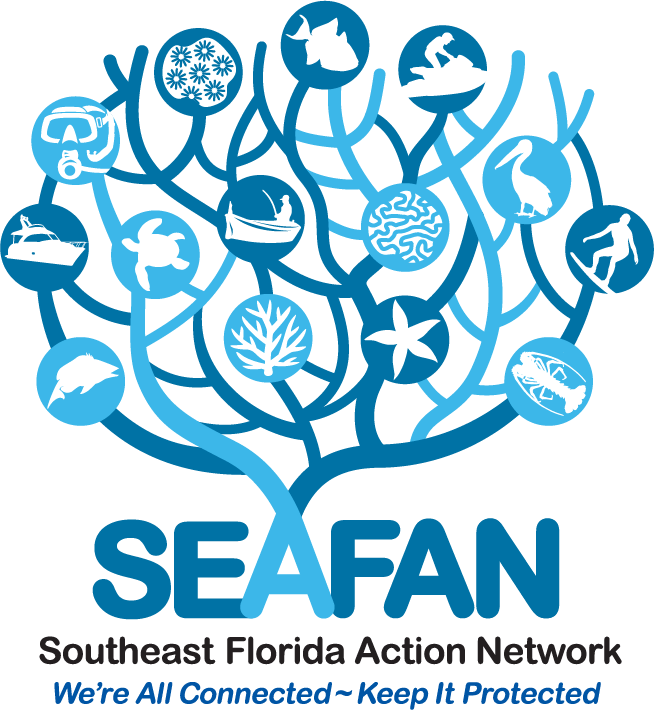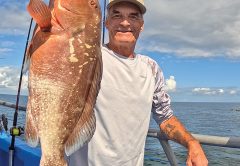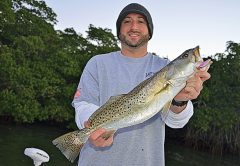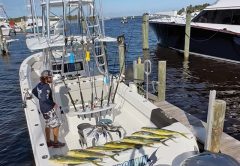
Other ways you can help Florida’s reefs is through citizen science. The Southeast Florida Action Network (SEAFAN) is a reporting and response system designed to improve the protection and management of southeast Florida’s coral reefs by enhancing marine debris clean-up efforts, increasing response to reef injuries, and providing early detection of potentially harmful biological disturbances. Everyone can contribute to the network by being our eyes and ears on the reef. Report anything unusual, including marine debris, vessel groundings, anchor damage, invasive species, harmful algal blooms, fish disease and fish kills, discolored water, coral disease and bleaching. There is no special training needed; just report what, when, and where the incident was observed by calling 866-770-SEFL (7335) or online at www.SEAFAN.net.
Other ways you can help to protect the reefs:
- Use navigational charts to locate reefs. Use Florida Department of Environmental Protection’s Coral Reef Conservation Program map on the ESRI ArcGIS mobile app to find a sandy spot for anchoring.
- Tie up to mooring buoys or anchor in sand. Boaters, divers and snorkelers can reduce physical impacts to corals by using mooring buoys instead of anchoring directly on or near a reef.
- Eliminate marine debris and pollution. Pump out your sewage only at marina pump-out stations and dispose of trash in designated areas.
- If you dive or snorkel, don’t touch! Avoid kicking or touching the corals. Disturbed sediments can smother and kill corals, so take care to stay off the bottom and avoid kicking up the sand.
- Follow fishing regulations and reduce the amount of fishing gear that gets into the ocean. Fish and marine invertebrates, like lobster, crabs and shrimp, are integral to maintaining healthy reef ecosystems. Learn and observe fishing regulations, seasonal closures and bag limits.





